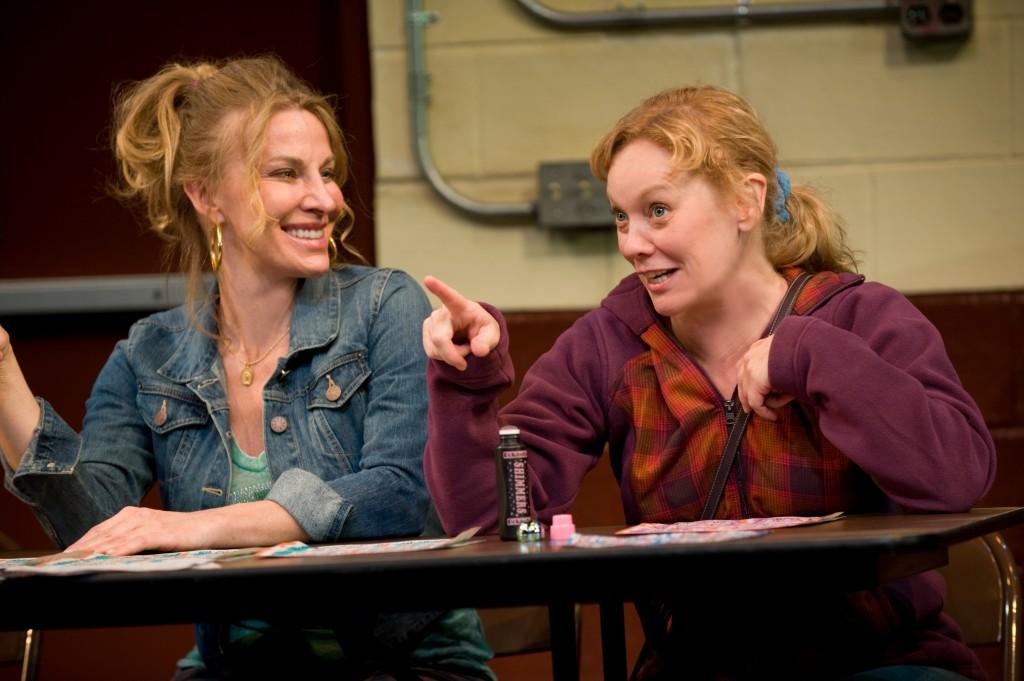With the presidential election quickly approaching, high unemployment, public services such as welfare and the candidates’ own backgrounds are the hot button topics of the season. These conversations often bring discussions about socioeconomic status to the forefront. In David Lindsay-Abaire’s timely and relevant “Good People,” playing through Nov. 17 at the Steppenwolf Theater Company, the American class divide similarly takes center stage.
Margie Walsh (Mariann Mayberry), a middle-aged woman living in the Southie neighborhood of Boston, has lost her job at the dollar store. The play is set in motion as she seeks out Mike (Keith Kupferer), a neighborhood pal and old boyfriend who has become a doctor, for a job. Over the course of the show, secrets from their long-past relationship emerge and threaten the lives they have created for themselves. Along the way, the audience is forced to contemplate notions of success – namely, whether the American dream is accessible to all and achievable through sheer hard work.
Lindsay-Abaire’s clear and forceful writing combines with K. Todd Freeman’s direction to throw the audience into a very realistic picture of blue-collar Boston. The class difference between Mike and Margie is highlighted wonderfully through the sets: Margie’s small, yellow, weathered linoleum kitchen seems a world away from Mike’s immaculate white-carpeted home, complete with columns, arches and a “push gift” purchased in honor of his wife’s first pregnancy. The tense and complex interactions between Mike and Margie lead to a discussion about the very different paths their lives took. Lindsay-Abaire’s message is apparent: Luck, particularly regarding birth circumstances such as family, determines your ability to rise above adversity. In the United States, a country fraught with a history of discrimination, this sentiment rings especially true.
This is not to say the play is all seriousness; humorous scenes abound, particularly those showing Margie’s interactions with two friends. Lusia Strus is hilarious as the raspy-voiced, no-nonsense Jean, while Molly Regan provides an equally comical Dottie (Margie’s landlady), thanks in large part to her money-centric comments and “small” business making plastic rabbits with googly eyes. The ensemble’s acting, particularly Mayberry’s, makes scenes such as bingo night, which is simply staged with a table directly facing the audience, feel authentic and not static. With the exception of Mike and Kate (Alana Arenas), whose actions sometimes felt unexpected and unrealistic, the characters are very much everyday people.
While the issue of class and opportunity is a major focus, Margie and her story ground the play and keep the discussion far from lofty. Mayberry is magnificent, capturing the Bostonian accent perfectly and managing to combine humor, pride and a dash of desperation into a character that is thoroughly human. Margie is ballsy, straight-forward (at times too much so), and her actions may be questionable, but she is always relatable in her quintessentially American desire – to work in order to provide for her daughter.
“Good People” challenges American meritocracy and the idea that Americans have the ability to really change the courses of their lives. With excellent acting, the play seamlessly blends the stories of the characters and their desire to behave like good people, with the larger question of success and how one achieves it.

